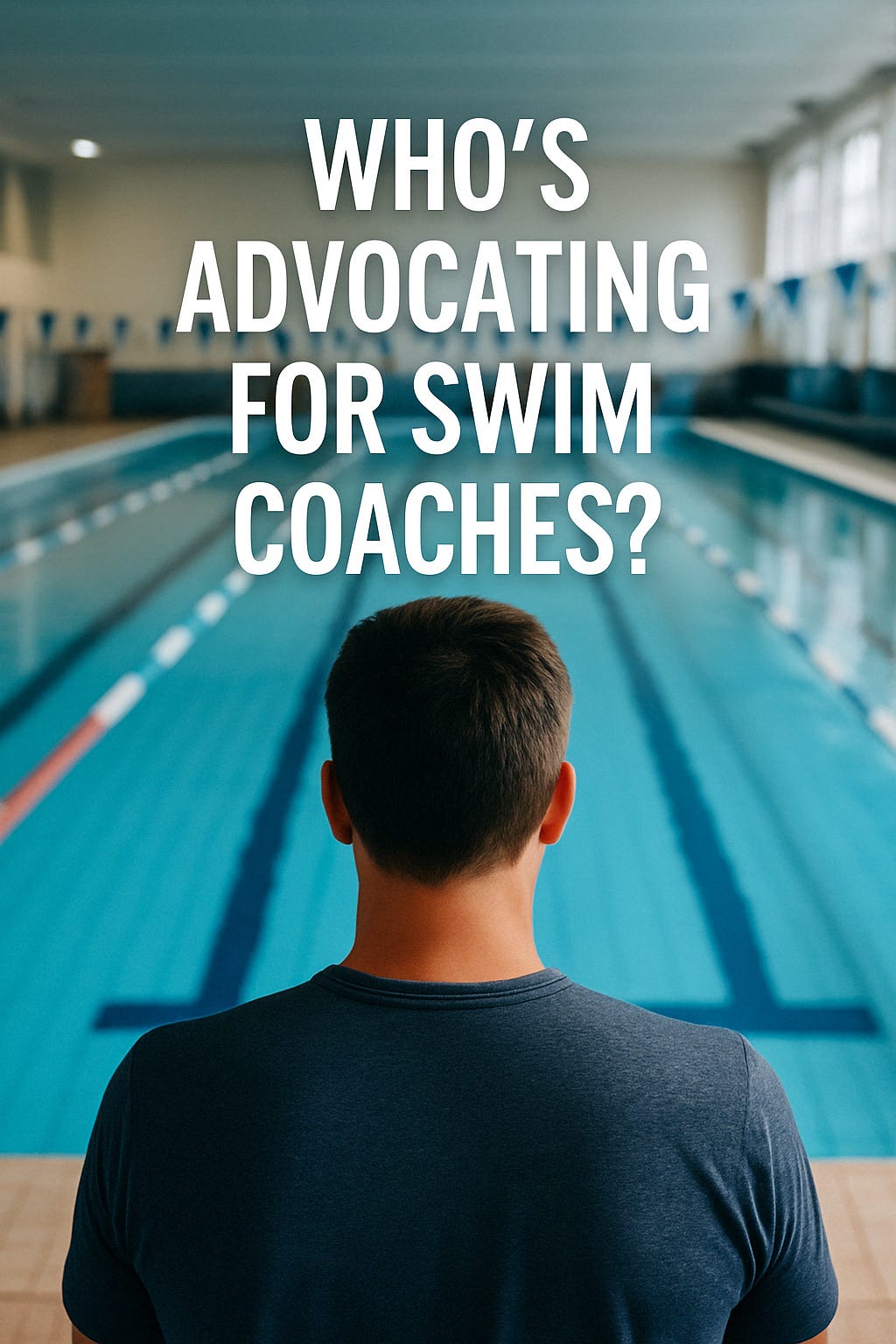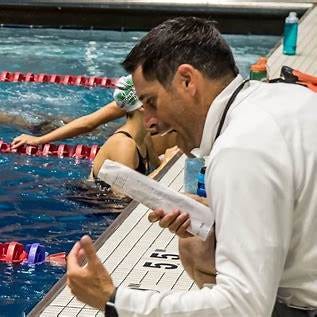A Moment That Hit Me
I’ve been thinking recently about one of Greg Meehan's Instagram posts from Paris last summer. He shared a video of the moment Torri Huske won the gold medal in the Women’s 100 Butterfly. The footage shows the end of the race and then cuts to Greg throwing his arms up in celebration. A few seconds later, you can tell he was experiencing a flood of emotions. The text accompanying the video was some of the bravest words a high-level swim coach has spoken in a very long time:
“This is raw emotion and it came from all kinds of places. Most of all it came from watching someone who stuck with you achieve their lifelong goal. This is the Olympics and why I freaking love it so much.“
This was brave.
This was vulnerable.
This was REAL.
This coach endured a lot from critics and naysayers, and was letting it all go.
What Most People Don’t See
During Greg’s time at Stanford, which included stints as the Head Coach for both the World Championships and the Tokyo Olympics, he had to endure shots aimed at him from critics; many times done anonymously online.
Greg wouldn’t answer back because you get nowhere trying to defend yourself against an anonymous person on the internet. He took the high road and kept working hard at the job he was tasked to do.
Still, to this day, I have not seen where Greg has said or written anything in response to the comment section trolls. He’s carried himself with the utmost dignity, and USA Swimming is very lucky to have him leading our National Team.
Greg’s post hit home for me because of the honesty and vulnerability he revealed and for what it represents to every coach who carries a similar invisible weight.
There are coaches all around the country enduring criticisms and left with no option but to forge on as if nothing bothers them. If they defend themselves, they get labeled as “difficult” or “thin-skinned.” Mind you, some criticism can be warranted. While no one is perfect, some coaches need better education on their role, how to lead effectively, and how to properly communicate with athletes, fellow staff members, and parents.
But what about when the criticism goes over the top or is done secretively? So much goes into coaching, carrying unnecessary emotional loads shouldn’t have to be a part of it.
The Real Question: Who’s Advocating for ALL Swim Coaches?
Coaches are the heart of the sport with regular and direct access to everyone else involved: athletes, parents, administrators, officials, and those operating facilities. Yet many coaches out there feel unsupported and like they are constantly under a microscope.
While I can accept that a critical eye comes with any occupation, it can easily go beyond acceptable and overbearing. When the criticism gets heavy for a swim coach, who is there for them?
For many coaches, the pressure doesn’t stop with their own standards; it’s compounded by the demands of parents and team boards. It isn’t always negative, but the negative can outweigh the positive and certainly stings much more. If a coach is lucky, they have a supervisor who can provide support, but not nearly enough coaches have the support they need and deserve.
Of course if we’re going to talk about support, we also have to talk about responsibility.
A Mirror for Coaches
In a lot of ways, we’ve done this to ourselves. Many coaches repeat the mantra, “This is the job—you wouldn’t understand,” when asked to take time away from practices. I know I’ve said this to my wife a number of times. But that mindset has helped normalize unsustainable expectations. We’ve created a “grind” culture with how we’ve approached the job. For this reason, coaches need to accept that it isn’t just the swimming world that needs to change; coaches need to make changes as well. If you keep showing up like a robot, you’ll continue to be treated like a machine.
There is a lot of wisdom in the statement, "If you are not part of the problem, you cannot be a part of the solution; look within first." If the coaching culture is going to change, it has to start internally. Coaches need to recognize what they need and how that can fit the job requirements. From there, we seek external change.
A New Chapter
USA Swimming naming Greg Meehan National Team Director is an excellent move for the organization. Since first meeting him in the early 2000s when he was at UCLA, I have come to know Greg as a thoughtful, hard-working, and caring coach. Greg's ability to communicate in a way that makes others feel valued, no matter who they are, is a trait that will serve him well as National Team Director. The National Team Director is not a coaching position; it is more of a communication position. There will be times when he must juggle conflicting viewpoints from coaches in high-stress situations, and a calm voice is needed to bring the temperature down to see important, time-sensitive tasks through to completion. Greg Meehan is the perfect person for this position.
The swimming community needs to band together to support Greg. As we welcome this new leadership chapter with him, it's the perfect time to reflect on the people guiding all of our athletes.
We’re not chasing perfection but we can build something better: a culture where coaches feel seen for what they give, supported through what they face, and valued in ways that actually matter. If we’re serious about creating a more sustainable, healthier environment, it begins with listening, paying attention, and asking ourselves: how are we really showing up for the people who always show up for others?
Next Week… I'll present five simple strategies coaches can utilize to remain centered and balanced, especially when the demands outweigh available resources and the necessary support is absent.







I’ve shifted away from the “grind” by setting up boundaries and protecting my energy. We are humans, first and foremost. Boundaries aren’t selfish, they are required to stay in this job.